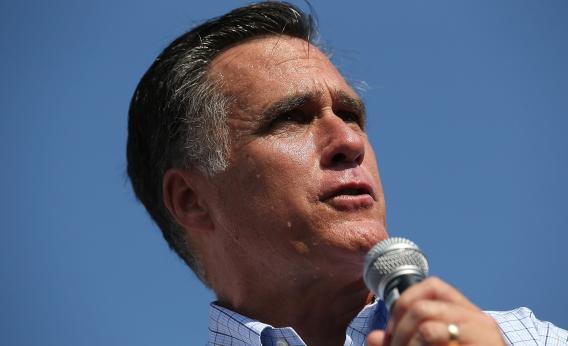Read the rest of Slate’s coverage of the Democratic National Convention.
Night 1 of the Democratic National Convention was a huge success: real emotion, true diversity, grace from Michelle Obama, substantive distinctions drawn without vitriol. The best of Democratic rhetoric was on display. Whether any of that will matter in November remains unclear, as conventions are increasingly viewed only by true believers. Tonight there is the added distraction of the NFL season opener. And the unemployment data that will come out Friday could dominate the weekend news if they show anything outside the range of 100,000 to 200,000 net new jobs. (Fewer than 100,000 will be a major problem for the president, more than 200,000 will be a momentum builder.)
The best line of the opening night came not from any of the live speakers, but from the late Sen. Ted Kennedy, in the video tribute to his remarkable career. He lanced Mitt Romney in the senatorial debate back in 1994 with the line that still speaks to Romney’s greatest flaw: lack of constancy. Kennedy said to Romney, on the issue of a woman’s right to an abortion: “I am pro-choice, you are multiple choice.”
Romney’s lack of fortitude in the face of political opposition has made him seem less a tough CEO than a chameleon. And so, while conventions are fun, I am looking forward to the debates, and would like to see Gov. Romney asked the following questions:
- You once claimed to be pro-choice and now say you are pro-life. Should Roe v. Wade be overturned—yes or no? Follow up: What is the reason for your dramatic shift in positions on the issue of a woman’s right to have an abortion?
- You have similarly changed your views on the issue of same-sex marriage. Why? What rights would you extend to individuals of the same-sex who want to enter a lifelong relationship?
- If you were governor of Massachusetts today, would you support the health-care bill you proposed and enacted when you were governor, with an individual mandate as an essential part of the financing mechanism? And if it makes sense for a state, why does the same logic not apply to the entire nation, putting aside any views you may have about federal versus state power.
- Had you been sworn in as president in January 2009, when we were losing about 800,000 jobs per month, what emergency economic measures would you have asked Congress to enact? If a stimulus was part of your package, how would it have differed in size and allocation, from that which President Obama asked Congress to enact?
- Had you been president in fall 2008, would you have asked Congress to provide emergency financing for the banks? If so, pursuant to what conditions?
The reality is that the speeches we are hearing this week and heard last week frame policy differences in a general way but must be parsed by rigorous examination of the candidates. That will be the true test.
